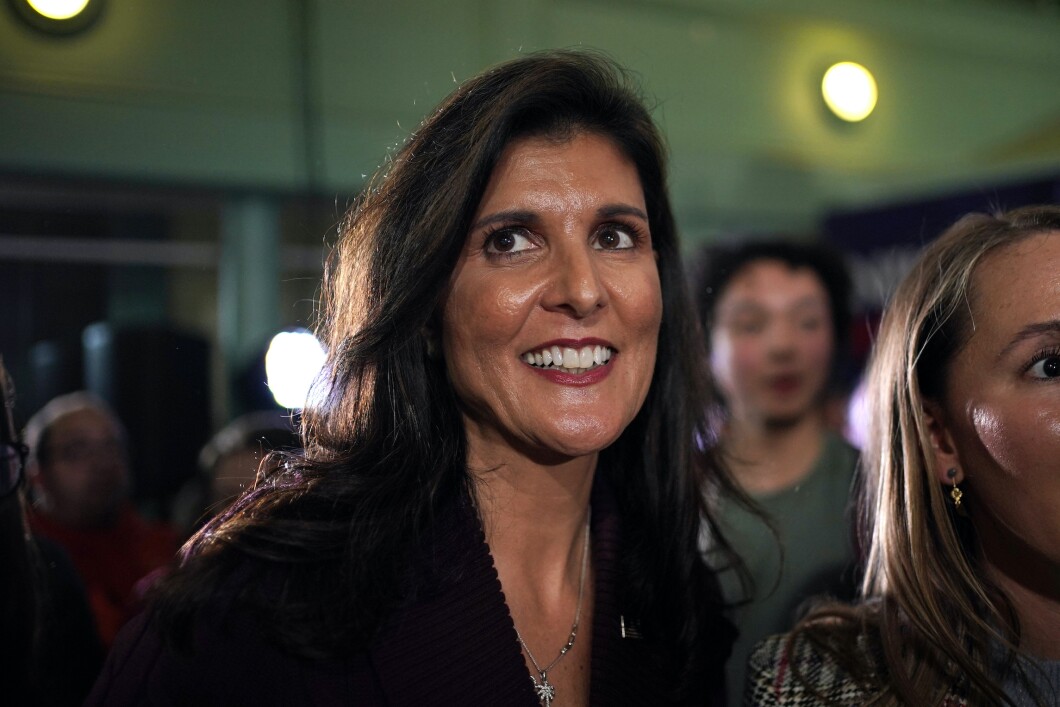
There were two kinds of stories written about former Ambassador to the United Nations Nikki Haley after she launched her campaign for the 2024 Republican presidential nomination.
One was skeptical. She has no chance, so what is she really running for? Vice president? The other take was more hopeful: Don’t write off Nikki Haley just yet.
Haley on paper is a formidable candidate: an anti-abortion conservative woman of color with executive experience as the two-term governor of an early primary state who held a Cabinet-level foreign policy position in the last Republican administration, relatively young but seasoned enough to be plausible, telegenic and eloquent without the rough edges that doomed many a GOP candidate in the midterm elections.
WELCOME TO THE TRULY PERMANENT CAMPAIGN
The problem is Haley lacks an obvious path to the nomination as the race appears likely to unfold. A Quinnipiac poll found that she was the third choice of Republicans nationally — but at 5%, with former President Donald Trump taking 42% and Gov. Ron DeSantis (R-FL) receiving 36%.
Haley is therefore running 31 points behind the second-place candidate, whose level of support is almost equal to the number of points she lags behind the front-runner.
Quinnipiac is also a poll in which Haley leads former Vice President Mike Pence. She trails them in a number of others. The RealClearPolitics polling average has Trump at 46%, DeSantis at 31.2%, Pence at 6.4%, and then Haley at 4%.
Even this 42-point deficit could be surmountable with a strong performance in an early state, like Iowa. A January Trafalgar poll showed Haley had a lot of ground to make up in her home state of South Carolina, the third Republican nomination contest in the country. She was in fourth place with 12% of the vote, behind Trump at 43%, DeSantis at 28%, and fellow native son Sen. Tim Scott (R-SC) at 14%.

Having a second South Carolinian in the race could be an obstacle in itself. As former Gov. Jeb Bush (R-FL) and Sen. Marco Rubio (R-FL) can tell you from their 2016 experiences, sharing donors and consultants, as Haley and Scott would, can be challenging.
It’s early, and polls are no longer as sure a thing as they were 10 years ago. But Haley’s fundamental problem is that she has to overtake not one but two candidates ahead of her, apparently by a wide margin, and perhaps a third. And she must do so in an environment where the coverage treats it as a two-Florida-man race even before the second of them has said he is running.
Things could still play out in Haley’s favor. Trump could be indicted, which would at least test his theory about being able to shoot people on Fifth Avenue without electoral consequences. DeSantis could yet decide the job isn’t worth 18 months of being called “Meatball Ron” and having various relatives linked to the Kennedy assassination, especially when he will still be under 50 in 2028.
The race is sufficiently unsettled due to the unusual circumstances of the two presumed top-tier candidates that it makes sense for other ambitious alternatives to emerge.
But Trump is already a declared candidate who can ride inertia to Iowa and New Hampshire this time around instead of the escalator at Trump Tower. DeSantis is rapidly nearing the point at which he would need to begin giving donors a heads-up if he wasn’t planning on running if he wanted to maintain his viability past this cycle.
That’s without getting into whether Haley is too much of a George W. Bush Republican for the current iteration of the party, something that played badly in the 2016 South Carolina Republican primary. There is also the question of whether she can continue to skillfully keep diversity a strength, using her background as an asset, even a refutation of wokeness, rather than the practice of identity politics that might offend a conservative electorate.
Haley will need to take advantage of the time period in which she is the only actively campaigning non-Trump candidate in the race, which could extend to the end of the Florida legislative session in May.
For Haley, being underestimated could serve as the kind of motivation an underdog candidate needs.
“When I ran against the longest-serving legislator in the state, no one said I had a shot, but together we won,” she said in her announcement speech. “When I ran for governor, people said, ‘Nikki who?’ But together, we won.”
“When President Trump nominated me for ambassador to the United Nations, people said I didn’t have the experience,” Haley continued, the only time she referred to the former president by name. “Then I went to work.”
CLICK HERE TO READ MORE FROM THE WASHINGTON EXAMINER
That’s what Haley needs to do now.
She’ll certainly have her work cut out for her.






